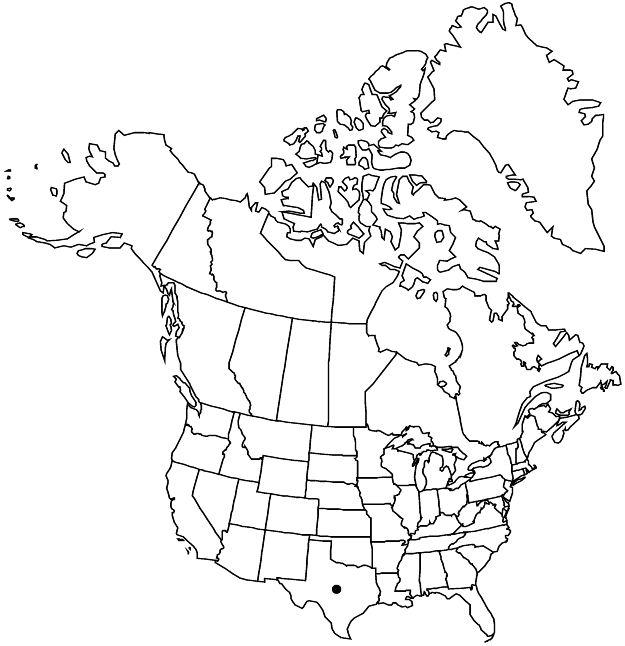Hypericum paucifolium
Proc. Amer. Acad. Arts Sci. 25: 143. 1890.
Herbs annual or perennial, erect or decumbent at base, not rooting, branches basal, relatively few or none, 1–7 dm. Stems: internodes 4-angled. Leaves erect to spreading, sessile; blade linear-oblong or linear-lanceolate to linear, 5–33 × 0.5–2 mm, leathery, margins plane to revolute, apex acute, basal veins 1(–3), midrib with (0–)1–3 pairs of branches. Inflorescences narrowly V-shaped, 1–50-flowered, branching mostly dichasial. Flowers 10–15 mm diam.; sepals narrowly oblong to narrowly lanceolate, subequal to unequal, 3–7 × 0.8–1.6 mm, margins sometimes ciliate, not setulose-ciliate, apex acute; petals golden yellow to orange-yellow, red-tinged , oblanceolate to obovate, 6–10 mm; stamens 35–50, irregularly 3-fascicled; styles 2.5–5 mm; stigmas broadly capitate. Capsules ± narrowly ovoid-conic, 4–9 × 2–4 mm. Seeds 0.5–0.7 mm; testa finely linear-scalariform.
Phenology: Flowering spring.
Habitat: Dry, grassy habitats, roadsides
Elevation: 0–50 m
Distribution

Tex., Mexico.
Discussion
The relatively long styles distinguish Hypericum paucifolium from all other North American species of sect. Trigynobrathys.
Selected References
None.